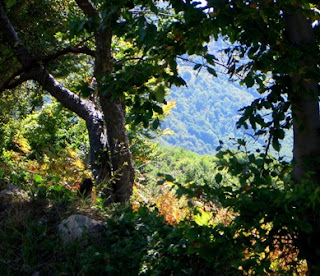Wednesday, 31 October 2007
Sustainable tourism?
It was also the second time in two days that I heard reference to Lovelock's current position as at one extreme in terms of saying its already too late for sustainable development and our level of resource use is completely unsustainable. I heard indirectly that Jonathon Porritt thinks of a spectrum from Lovelock to Lomborg and his position shifts a little one way and another. Good to hear that somehow.
Tuesday, 30 October 2007
Monday, 29 October 2007
Wildlife photos of this year
More on "scientific truth".
For my part, I would say that strictly speaking, Gore oversimplified certain points, made a few factual errors and, at times, chose the wrong poster child (Mount Kilimanjaro should have been replaced by any number of Alaskan or Andean glaciers, for instance). It's unfortunate, but it remains the most comprehensive popular documentary on climate change science I have seen.
Also interesting to see the extensive and diverse discussion in the comments that follow it.
Sunday, 28 October 2007
Best environmental blogs
Thursday, 25 October 2007
Lomborg on polar bears - refocus or distraction?
Wednesday, 24 October 2007
Gore's response to court ruling
"From the start, this court case has reminded me of the "intelligent design" lawsuits in the US. The whole point of the climate change denying camp is to create a false sense of debate, when (in fact) the science on global warming is painfully clear. They've done a pretty good job of this - delaying real action for years - but we can't afford to let them keep doing it."
Tuesday, 23 October 2007
Porritt on capitalism as if the world matters
"2007: the atmosphere warms up; the forests crash down; the poor of the world go on getting poorer; water resources in more than 30 countries are running dry; fish stocks decline; an additional 73 million people join the human race; 800 million go hungry while a billion get fat. Just an average year in the life of planet Earth. And still we wait for today’s political “leaders” to begin to get their act together.
This is not a question of disputed science. Even on climate change, the consensus is now overwhelming. Neither it is a question of money. The rich world squanders countless billions of dollars of tax payers money on subsidising life-destroying industries year in, year out. Instead, it is a question of fear and lack of political vision.Politicians are fearful because they don’t believe the answers can be found within a capitalist framework. And they know they won’t get elected unless they go on offering voters the same kind of “get rich quick, party on politics” that has dominated our lives for the last 50 years."
Autumn mists
Wednesday, 17 October 2007
Taking responsibility - green spaces and obesity
Monday, 15 October 2007
Autumn colours

Saturday, 13 October 2007
Whose purpose does this serve?
Whose purpose does it serve to take this through the courts? Surely good teachers and schools would use any film material critically and include discussion of values not just facts? What does this governor have to gain? Is he just making a point of principle about our Government dictating what's shown in schools? Or is he trying to suggest that science is somehow value free and that alternative ways of teaching about climate change would be so much better?
As an ex-teacher I think I'd have found Gore's film a very useful resource but it wouldn't be the only one I'd use. Doesn't this line of attack on such a film instead send out a message of reassurance to pupils that it's not as bad as was made out so it's OK for them to do nothing? Just about all resources used in school advocate one particular line or other and echo the values of those who've produced them. There's such an inertia in our society about taking action to positive effect rather than sitting on the fence and defending the status quo. There seems to me a good case for using material that provokes, which is what the Gore film seemed to me to do. Important that pupils learn about 'good science' but not at the expense of everything else and as if it's value free.
And why did this make headline news on the BBC?










